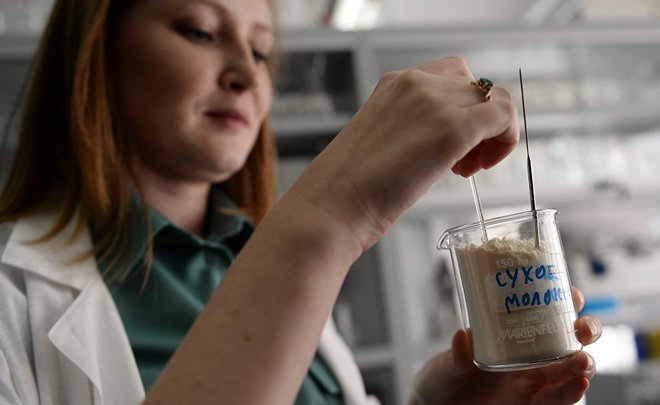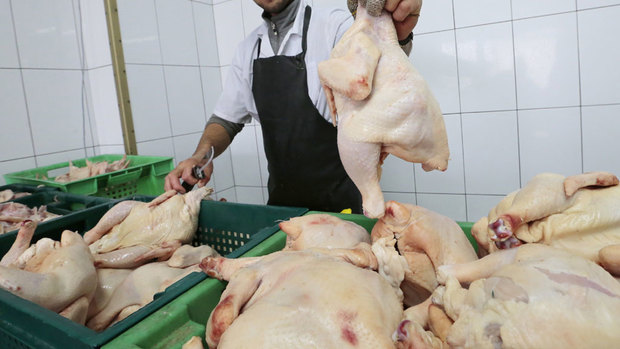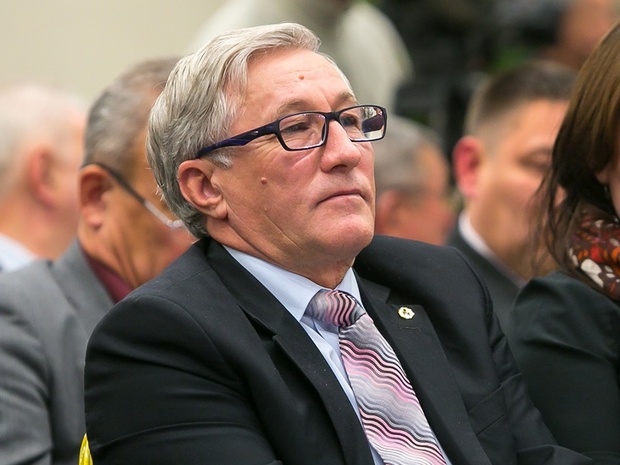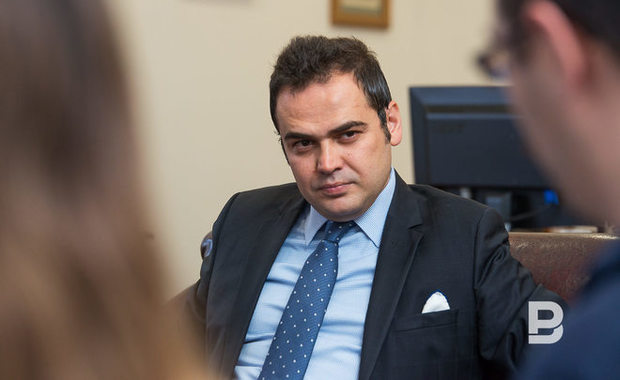Foreign meat and dairy good suppliers are fighting for cancellation of sanctions, and it happens together with limits on local producers

Almost 300 Turkish companies contacted the Federal Service for Veterinary and Phytosanitary Surveillance and asked it to permit supplies to Russia. Dairy suppliers account for 1/3, fish, seafood, poultry, egg and other suppliers are the rest. In 2016, Turkey already was fifth in terms of dairy supplies to Russia and second (after the Republic of Belarus) on skimmed milk powder imports. Curiously, they are conquering the market simultaneously with imposed limits on local producers.
Turkish meat and milk try to reach Russian market
Turkish agricultural and food suppliers started massively ask to return to Russian markets. According to Izvestiya, 282 enterprises from the Turkish Republic already contacted the Federal Service for Veterinary and Phytosanitary Surveillance. 97 of them make milk and dairy, 52 – fish and seafood, 43 – poultry, 40 – hatchery eggs and chicks, 31 – prepared meat products.
The federal service claims that this possibility can be considered only after another inspection of Russian veterinaries. It was emphasised that rests of banned and harmful substances were detected in products coming from Turkey many times. In addition, the country almost did not deliver meat and fish products during the last year.
It should be reminded that the ban on supply of Turkish vegetables, fruits and meat was imposed by Russia at the beginning of 2016 and became the continuance of the late 2015 political crisis when a Russian jet was downed by Turkish militants during the Syrian conflict. In addition, the Federal Service for Veterinary and Phytosanitary Surveillance set limits at the beginning of 2016.
Turks want to conquer dairy market with the help of powdered milk
As strange it might sound, Turkey is one of the biggest dairy suppliers to Russia. According to Soyuzmoloko, in 2016, supplies of Turkish skimmed powdered milk even grew. In the second half of 2016 (total import volumes for 9 months), Turkey rounded out the top 5 biggest foreign dairy suppliers to Russia for the first time having lowered Switzerland to 6 th position. Although dairy supply volumes from this country to Russian market remain relatively small (about 1% of imports), the activity of Turkish entrepreneurs already changes the situation in the market.
As director of PR Department at Soyuzmoloko Maria Zhebit told Realnoe Vremya, dairy was almost exported from Turkey to Russia until 2014. However, together with Russia’s imposition of limits on production supply from several countries in August 2014, some commercial partners from Turkey started to consider Russian market as one of the most attractive and biggest than the markets of the current Turkish commercial partners – Iraq, Saudi Arabia, Egypt and other Near Eastern and African countries. As a result, nowadays 8 Turkish milk processors have permission of the federal service to deliver dairy to Russia. But skimmed milk powder of two of them (Sütaş Süt Ürünleri A.Ş. и Aynes Gıda Sanayi Ve Ticaret Anonim Şirketi) is strictly controlled in laboratory ”because of detected banned and harmful substances”.
Before 2016 the share of Turkey in the structure of imported dairy in Russia was extremely small: in 2012, it was 0,002%, in 2013 — 0,001%, in 2014 — 0,02%, in 2015 — 0,06%. Skimmed milk powder is the main imported product from Turkey – about 99% of all Turkish dairy supplies to Russia is skimmed milk powder. In terms of skimmed milk powder supply volumes to Russia, Turkey ranks second after the Republic of Belarus providing 7% of all imported skimmed milk powder, according to preliminary results for 2016 (about 9,300 tonnes were imported). In 2016, Turkish market exported about 20,1% of skimmed milk powder to Russia. Moreover, Russia became the biggest foreign consumer of skimmed milk powder from Turkey.
Is road for Tatarstan milk closed but opened for Turkish?
Chairman of the Association of Farmers and Farmsteads of Tatarstan Kamiyar Baitemirov thinks that Turkish supplies are not a threat for Tatarstan meat and milk producers. They are unlikely to press their products. However, he supposes that, in general, they need to focus on the development of production in Russia, not open access for foreign companies.
”In Tatarstan, we completely meet the demand for meat. Probably there were separate supplies of some exclusive or other products,” Baitemirov thinks. ”Anyway, I have not seen dairy and meat from Turkey. Generally speaking, the Ministry of Economy and Russian Statistic Service estimated that we had purchased different products for more than 70bn rubles. I don’t have a list of the products. Return or participation of Turkish or other producers will be unethical towards our own agricultural producers. We have a potential. This is why we need to develop our own potential. I understand the competitiveness issue. In Russia, we supply 6m tonnes of milk. The task was set. To eliminate the gap on milk, it is necessary to increase the number of cows, construction of farms, including small farms.
However, we should remind that the Federal Service for Veterinary and Phytosanitary Surveillance set limits on the export of raw milk from regional producers since 1 February. Tatarstan was among them. Realnoe Vremya wrote than many Russian regions faced a lack of milk for processing, nobody guarantees that the deficit won’t be compensated by foreign milk powder.”
Export fell, import rose
In fact, very Tatarstan should not wait for a flow of Turkish goods. Consul General of Turkey to Kazan Turhan Dilmaç told Realnoe Vremya’ correspondent that he hadn’t received any address from the producers who wanted to come back to Russian market. ”We did not receive such petitions,” he said. The consulate general also found it difficult to specify how many producers supplied their goods to Kazan before the rift between Russia and Turkey. Neither the Ministry of Agriculture and Food of the Republic of Tatarstan nor Agricultural Complex, Land Relations and Consumer Market Administration of Tatarstan’s Cabinet of Ministers had information.
Even if Turkey is traditionally considered one of the most active business partners of Tatarstan, in fact, the economic relationship not always was perfect. For instance, the commodity turnover has been reducing for several years in a row. For comparison, in 2009 and 2010, it was more than $1,5 billion, in 2011, the indicator fell twofold. There was a rise in 2012. But then the numbers started to drop again and did not reach the previous level any more: $659 million in 2013. In the crisis 2015 for Russian and Turkish relations, it was $350 million. At the same time, the major fall in the early 2010s happened due to a sudden reduction of Tatarstan export volumes, while export from Turkey grew during all these years: $56,6 million on 2009, $302,8 – in 2013.
The last numbers announced on a Tatarstan and Turkish Forum in December 2016 showed that the political crisis worsened the situation – commodity turnover between Tatarstan and Turkey was just $130 million for three quarters last year.
Now Tatarstan supplies products of the chemical and petrochemical complex, rubber, plastic, polymer, wooden (plywood, lumber), black metal goods and other products to Turkey. Transport vehicles, mechanical and electric equipment, plastic goods, fur, leather and glass, furniture come from Turkey to the republic.
Source : Realneo Vremya
















